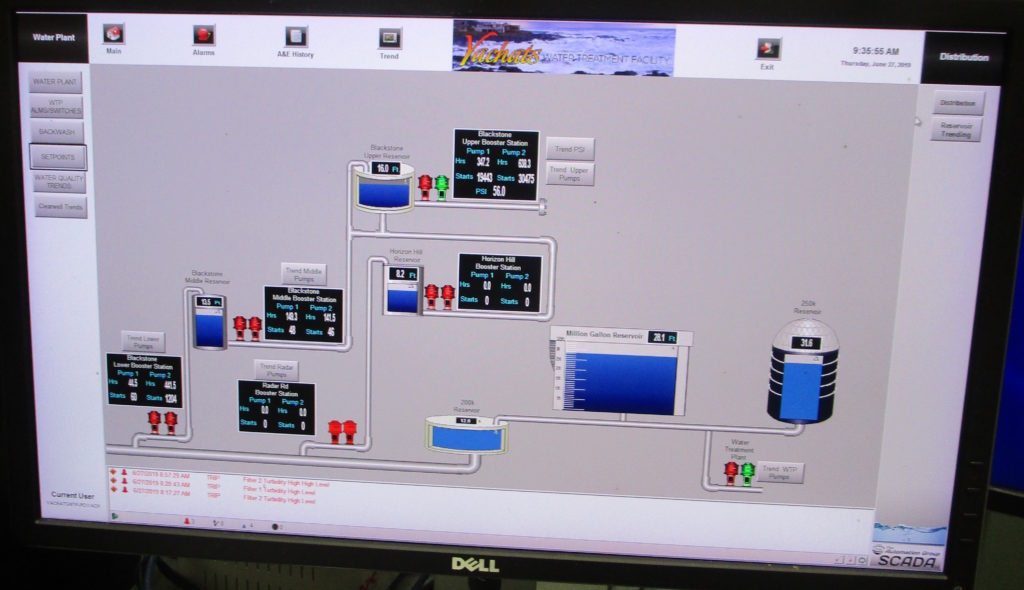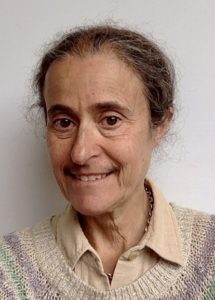
BY QUINTON SMITH/YachatsNews.com
A disagreement over how much money the city of Yachats needs to generate for maintenance projects from new water rates delayed a preliminary decision on those rates Thursday.
The city is in the midst of a $24,000 study to determine new water rates. The council decided previously that the new rates should cover regular operating costs and provide $200,000 for yearly maintenance and repair projects.
Current rates indicate the city losing a little bit of money each year and generating $100,000 for capital projects.
Tim Tice of the Oregon Association of Water Utilities, who is doing the study, is recommending the city go to a system based on meter sizes and water use.
That, he told the council Thursday, will have minimal impact on residential users, put the city in the black and – depending on the rate the council picks – should generate $100,000 to $200,000 for maintenance projects.
But in order to generate $200,000, the water bills for the city’s five to eight biggest water users would increase substantially. Those biggest users – motels, apartment complexes and an assisted living facility — consume more than 40 percent of the city’s water.
The city currently charges residential customers a base rate of $48.24 a month for two units (1,496 gallons) of water. Additional charges begin once the customer uses more than two units – currently $5.33 for every two units no matter how much water the customer uses.
The new system would be based on consumption, after the initial two units of water.
To generate $200,000 for projects, after the customer used their first two units of water the rate would stair-step from $8.50 per two units to $10.50 and then to a maximum of $12 per two units as consumption increased.

Tice gave those numbers to the city last week. After seeing them, Mayor John Moore and Councilor Leslie Vaaler met with Bob Bennett and Don Groth of the city’s Public Works and Streets Committee on Monday to see how much money smaller rates might generate.
If the amount for projects was lowered to $100,000, Tice said the rates would be $6, $6.50 and $7 as use rose beyond the initial two units.
Citing – without numbers – a “truly significant” impact on Yachats’ motels, Moore said Thursday that he was more comfortable with the lower rates and the $100,00 it would generate.
Previous councils have also tempered water rate increases for the city’s largest users, acknowledging that their lodging taxes provide the bulk of the city’s general fund budget.
But Vaaler immediately pushed back, saying the council had already voted to look at rates that would generate $200,000 for maintenance.
“I don’t like our infrastructure not being taken care of,” she said.
When asked to address the council, Bennett said he was “comfortable” with the rate structure that would generate $100,000.
Bennett said the new structure would have little impact on year-round residents, keep hundreds of second homes contributing to costs and move more costs onto large water customers “but not overly so.”
“This tiered structure is a sound approach,” he said.
Before pressing for a rate vote, Moore mentioned that a similar study on sewer rates would be next.

With a council vacancy, Councilor Max Glenn absent and Councilor Jim Tooke not wading into the discussion, Vaaler resisted Moore’s attempts to seek a vote.
Vaaler said she preferred to wait until Tice ran more water numbers and after the council found out if it would also have to raise sewer rates.
“The customer looks at the entire bill,” she said.
Once Tice said he could have the wastewater study done by April, the council voted 3-0 to wait until it received the second study before determining overall rates.
In other business the council:
- After back-and-forth between Moore and Vaaler over what were goals and tasks, formally adopted its 2020 goals and tasks associated with those;
- Agreed on questions it will ask applicants for the council vacancy in March. Those are in addition to the seven questions already on the application, which is due Feb. 14;
- Agreed to let Dahl Disposal’s trucks drive north on Ocean View Drive between West Third and Seventh Streets to pick up garbage and recycling. The city had made that portion of Ocean View one-way southbound, but had been a problem for the trucks which have mechanical arms on their right side.



I recall a member of our City Council being quoted as saying the City should not be subsidizing a business venture. This was related to vacation rentals and the cost of providing inspections as part of the licenses. How is it then that all of us residents and vacation rental owners are subsidizing the cost of water and sewer for businesses using 40 percent of our water and not paying for 40 percent of our water. Every one of us, residents and businesses alike, should be paying for what we use!
Excellent point Ms. Finney! How about some clear thinking in Yachats? If the 40 percenters can not pass on this cost to their customers and residents,(which they will) then they can cut back on their 40% usage. This seems like common sense. Something that would come in handy at the commons.